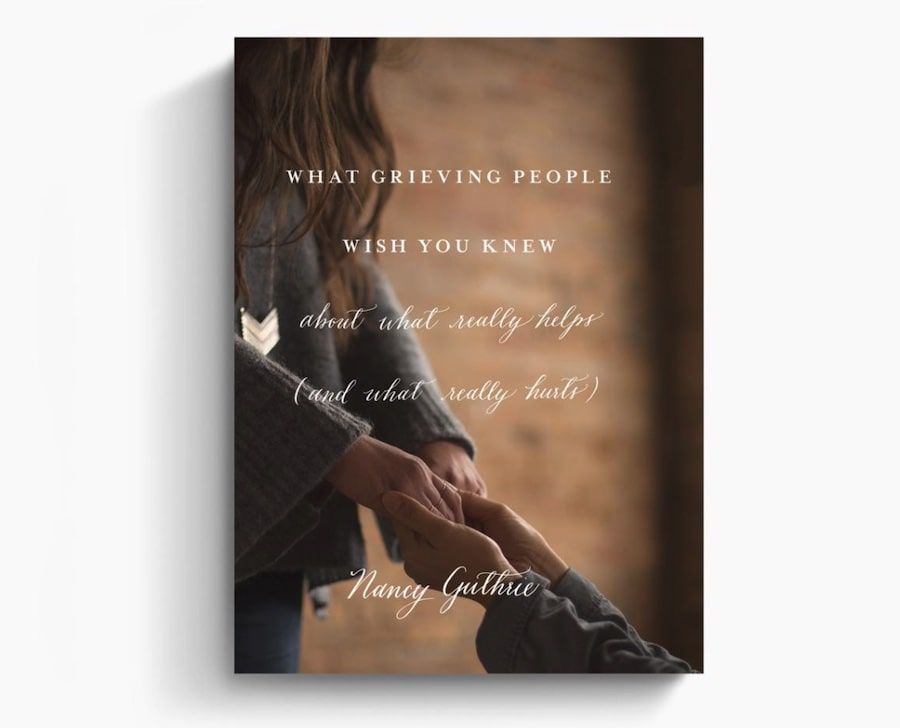What Grieving People Wish You Knew
Learn how to better love and care for those who have experienced loss. If you find it hard to show up and grieve alongside others, read this book.

Frequently, when I see someone grieving over a painful loss, I struggle to say the right words. Fearful of doing the wrong thing, I avoid reaching out to these grieving individuals. Tragically, that is the worse way I can respond to these who are grieving.
Nancy Guthrie’s book, What Grieving People Wish You Knew, neatly organizes helpful principles on how Christians should respond to these opportunities of ministry. Guthrie draws from her personal experience of loss, having grieved over the death of her two young children. But she does not stop there. She draws on the perspectives of hundreds of individuals who have experienced loss. This 194 page book contains dozens of quotes from people who have experienced different types of loss.
Book Summary
Guthrie begins in chapter 1, explaining 11 basic principles. Some of the ones more pertinent to me include the following:
- Don’t assume.
- Don’t compare.
- Listen more than you talk.
- Don’t tell them what to do.
- Esteem their grief.
In chapter 2, Guthrie reviews some common things NOT to say.
- “I know just how you feel.”
- “You’ll be fine.”
- “Don’t you think it’s time to move on?”
- “This must be God’s will.”
- “Just call me if you need something.”
Grieving people are not going to call you if they need something. They need for you to figure out what they need and just show up and take care of it. (Guthrie, What Grieving People Wish You Knew, p.51)
She offers helpful alternatives we can say to show we want to grieve alongside others. I wished I had understood the contents of this book many years ago. I violated many of the thoughts in this chapter, as a physician and as a friend.
Chapter 3 can be summarized with two words: “Show up.” As I read this chapter, I was reminded of all the times my friends suffered loss, and I was not there. It’s enough to just give a timely hug or offer a simple word of sympathy. “I don’t know what to say, but I’m sorry for your loss.”
Chapter 4, Guthrie gives more insight on what we should think and do when we do show up. For some of us, being thoughtful and considerate does not come natural. If you are still reading the book at this point, you obviously have the intention to want to grow in this area. This chapter is not a comprehensive how-to chapter, but it provides a lot of suggestions and food for thought.
I found chapter 5 particularly helpful. Guthrie explains how we can show we are thinking and grieving with others in social media. This book greatly challenged me to rethink my passive behavior of just reading through my news feed. Pressing the “like” button, leaving a short comment, and sending private messages can make a difference. Everyday, I know I have friends on Facebook who post a photo or status update to broadcast some type of hurt. Don’t just read without taking action.
In chapter 6, Guthrie switches gears and expounds on how Christians can apply the realities of eternity and heaven. You don’t need to be a Christian to understand and apply the principles laid forth in the first 5 chapters. This sixth chapter is distinct in that it bridges our Christian worldview to comforting those who are grieving. As an enthusiastic Bible reader, I did not gain much new insight; however, I am still glad to see this chapter included in the book.
In the seventh and final chapter, Guthrie answers seven common questions. I found her answers generally helpful, although the answers tend to be based on her personal experience and her opinions.
Final Thoughts
I am thankful that Guthrie wrote this book published by Crossway. The principles and insights presented are not easily learned from just talking with one or two individuals. Guthrie has talked and ministered to many thousands of people who have grieved and experienced loss; this book is well organized and researched.
Overall, I recommend this book highly to anyone desiring to gain a better understanding of how to love and care for those who have experienced loss. If you find it hard to show up and grieve alongside those around you, you need to understand the content Guthrie has effectively consolidated in this very accessible book.




